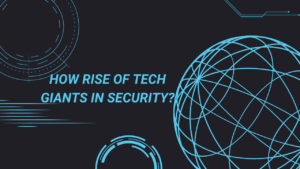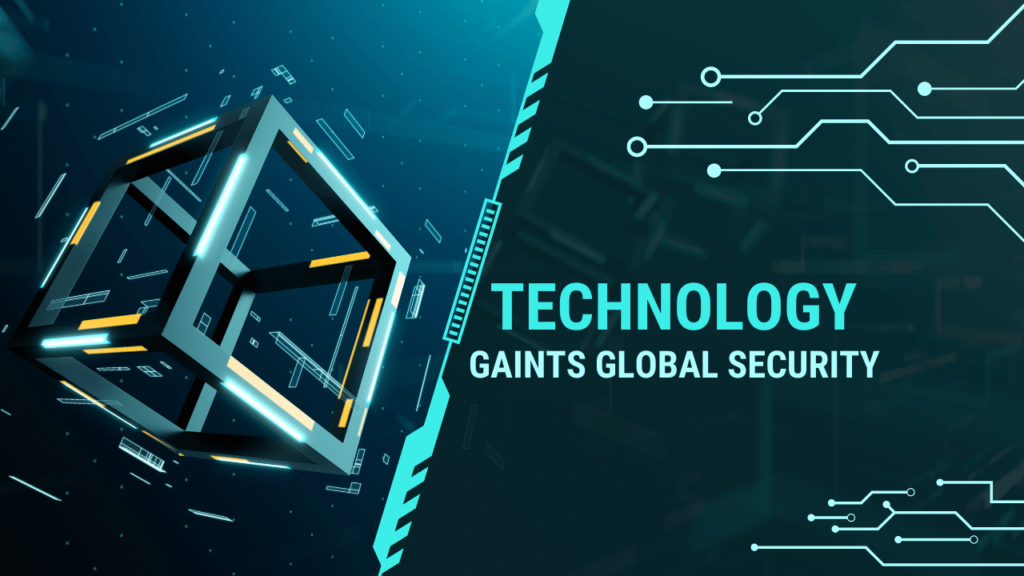Are you looking for insights into how technology giants, software and hardware innovators, have become pivotal players in global security? With infrastructure as critical as physical borders, these corporations lead in advanced security solutions, influencing both policy and practice worldwide.
What is Tech Global Security?
Tech Global Security refers to the overarching concept of maintaining safety and protecting assets in the global digital and physical realms through the use of technology. This concept encompasses a wide range of practices, tools, and strategies used by individuals, businesses, and governments to protect against threats such as cyber-attacks, data breaches, and physical security vulnerabilities. The focus is on leveraging technology to ensure data and systems’ integrity, confidentiality, and availability across borders, making it a critical concern in today’s interconnected world.
Tech Global Security involves multiple facets, including:
- Cybersecurity: Protecting computer systems, networks, and data from digital attacks.
- Physical Security Technologies: Using technological solutions like surveillance cameras, biometric systems, and automated locks to secure physical assets.
- Data Protection: Safeguarding personal and corporate data against unauthorized access and ensuring compliance with data protection laws.
- Network Security: Implementing measures to protect the usability and integrity of networks and data, including both hardware and software technologies.
- Cloud Security: Securing computing services hosted on remote servers, accessible over the internet, which are used to store and manage data.
- Internet of Things (IoT) Security: Addressing the security challenges of connecting devices and appliances to the Internet.
Tech Global Security is a dynamic field that is continuously evolving as new technologies emerge and threats become more sophisticated. It requires ongoing adaptation and proactive strategies to mitigate risks and protect against potential security breaches.
How Rise of Tech Giants in Security?

The rise of tech giants in the security realm is a significant phenomenon, influenced by their expansive technological capabilities, vast user bases, and strategic interests in safeguarding their platforms and offering security solutions to others.
Here’s a closer look at how these tech giants have become pivotal players in global security:
Expansion into Security Markets
Tech giants such as Google, Amazon, Microsoft, and Apple originally focused on areas like software, hardware, and e-commerce. However, as their core businesses expanded, so did their exposure to security risks. This necessitated the development of robust internal security measures, which, over time, evolved into external security products and services. For instance, Amazon acquired Ring to bolster its home security offerings, while Microsoft developed Azure Security services for cloud protection.
Acquisition and Innovation
Many tech giants have entered the security sector through acquisitions of pioneering security firms. These acquisitions allow them to integrate advanced security technologies into their existing product suites quickly. Their substantial R&D budgets also enable continual innovation in security technologies, keeping them at the field’s cutting edge.
Data Control and Analytics
These companies control vast amounts of data, giving them unique insights into emerging security threats and trends. By analyzing this data, they can develop predictive security tools and intelligence capabilities that are highly effective in preempting and mitigating risks. Google’s use of machine learning to detect and respond to threats in real-time across its services is a prime example.
Influence on Security Standards
Tech giants also play a crucial role in shaping security standards and protocols due to their influence and the reliance of millions of users on their platforms. Their participation in drafting and adopting security standards often sets benchmarks for the entire industry.
Offering Security as a Service (SecaaS)
With the rise of cloud computing, many tech giants have started offering Security as a Service (SecaaS), providing customers with security management and maintenance services hosted on their platforms. This approach allows even smaller organizations to benefit from top-tier security technologies without the need for significant upfront investments.
Global and Regulatory Challenges
Operating globally, these giants face a complex web of regulatory environments, which pushes them to maintain high security and compliance standards across different regions. This global perspective enables them to build security solutions that are adaptable and compliant with international laws and regulations, such as the GDPR in Europe.
Strategic Partnerships
Tech giants often collaborate with governments and other entities to enhance security measures. For example, their involvement in national cybersecurity initiatives or partnerships with law enforcement to tackle cybercrimes demonstrates their integral role in public sector security.
Data Control and Privacy Concerns

Data control and privacy concerns are at the forefront of global discussions about technology and security. As technology giants wield unprecedented control over vast amounts of data, individual privacy and data security implications are profound.
Here’s an exploration of the key issues related to data control and privacy concerns:
1. Massive Data Collection
Tech giants collect extensive user data, including personal information, location data, browsing habits, etc. This data is essential for providing personalized services, targeted advertising, and enhancing user experience. However, the sheer volume of data collected raises significant privacy concerns, particularly regarding how it is used and who has access to it.
2. Data Usage and Transparency
There is often a lack of transparency in how companies use the data they collect. While many use data to improve services, others might sell data to third parties or use it for purposes that users are not fully aware of or might not have explicitly consented to. This lack of transparency can undermine trust and threaten users’ privacy.
3. Data Security
With great data comes great responsibility. Tech giants must protect the data from breaches, hacks, and unauthorized access. Data breaches can expose sensitive personal information, leading to financial loss, identity theft, and other severe consequences for individuals. The frequency and severity of data breaches have escalated concerns about the ability of these companies to safeguard user data.
4. Regulatory Compliance
As global scrutiny over data privacy intensifies, tech giants face complex regulatory environments. Laws like the General Data Protection Regulation (GDPR) in Europe and the California Consumer Privacy Act (CCPA) in the U.S. have set stringent data privacy and user rights guidelines. Compliance with these regulations is a legal obligation and a critical aspect of maintaining user trust and corporate reputation.
5. User Control and Rights
Users are increasingly demanding more control over their data. They seek the ability to decide how their information is collected, used, and shared. In response, many tech companies have started providing more robust tools for data management, such as data download tools, the ability to delete accounts, and more detailed privacy settings. However, the effectiveness and user-friendliness of these tools can vary significantly.
Future Trends and Innovations
The landscape of technology is rapidly evolving, driven by major innovations and trends that promise to transform industries and enhance our daily lives:
- Artificial Intelligence and Machine Learning: Future developments focus on ethical AI, increased accessibility, and enhanced automation across various sectors.
- Quantum Computing: Still emerging, quantum computing is expected to revolutionize fields requiring significant computational power, such as drug discovery and financial modeling.
- Internet of Things (IoT): IoT is expanding into smart environments like cities and homes, improving energy management, traffic, and personal health through connected devices.
- Augmented and Virtual Reality: These technologies are set to offer more immersive experiences in entertainment, education, and business, integrated with advancements in 5G and AI for realistic interactions.
- 5G Technology: The deployment of 5G is crucial for supporting advanced tech like IoT and smart devices, with research into 6G hinting at even more transformative capabilities.
- Blockchain and Decentralized Finance (DeFi): Beyond cryptocurrencies, blockchain is poised to redefine secure transactions and data management, with DeFi challenging traditional financial systems.
- Sustainable Technology: Innovations in green energy and sustainable tech aim to tackle climate change, focusing on renewable energy storage and reducing industrial carbon emissions.
Conclusion
Throughout this article, we have explored how technology giants have come to play a pivotal role in global security, driven by their technological innovations and strategic initiatives. As we look to the future, the role of artificial intelligence (AI) stands out as particularly transformative. AI’s ability to analyze vast datasets quickly and accurately is becoming indispensable in threat detection and response strategies. As these companies continue to harness AI’s potential, their impact on global security is set to increase, making our digital and physical worlds safer and more resilient.



